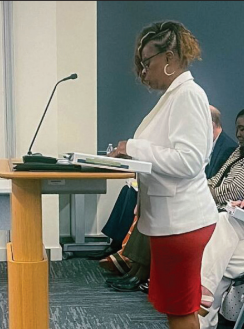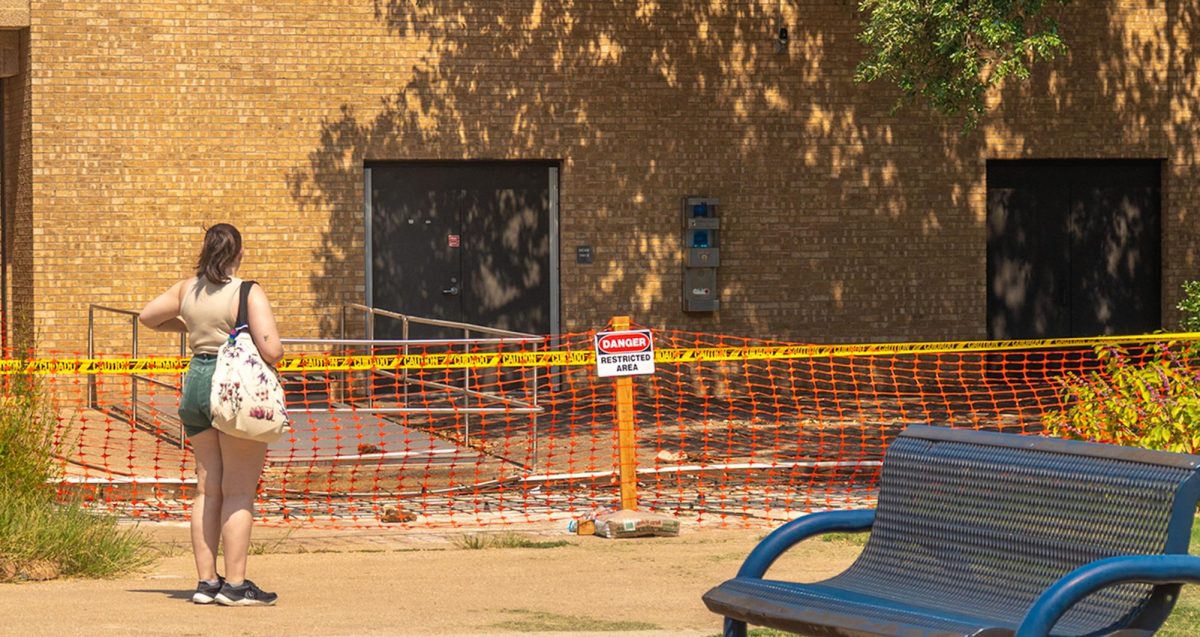
The Joint Consultation Committee and faculty associations on all campuses will be dissolved on Sept. 1 to ensure compliance with Senate Bill 37.
The board of trustees took no action to approve the JCC’s proposed revisions to board policy regarding faculty senates at its Aug. 21 meeting.
Chancellor Elva LeBlanc said while the board values faculty, they must protect the college.
“We’ve been hit with all kinds of legislation in recent years, and trustee [Shannon] Wood, you and I sat among attorneys and stated, ‘We’re gonna follow the law,’” LeBlanc said. “And that’s what we want to do.”
Signed into law on June 20 and taking effect Sept. 1, SB 37 limits faculty senates and councils to being an advisory body across all higher education institutions in Texas.
It also restricts the body to a maximum of 60 members unless approved by the governing board, requires higher education institutions to conduct regular reviews of the curriculum and establishes an Office of the Ombudsman to resolve complaints.
JCC Chair Madelyn Bowman, an associate professor of government on South Campus, presented the proposed changes to board policy.
Bowman, who practiced before coming to TCC, said she was disappointed in the board’s decision.
“I think it’s going to be very difficult for faculty to have a voice,” Bowman said. “We have committees and start initiatives ourselves with our faculty senate, and that won’t be in place.”
During the NE Faculty Association meeting on Aug. 25, NE Interim President Kirsten Jakowitsch said faculty will still be included in the decision making and day-today operations of the campus.
“At the end of the day, we cannot do what we do without faculty. You guys are the campus,” she said. “Faculty are still going to be involved in every single piece that they want to be involved.”
Leigh-Anne Regenold, an assistant professor of government, was elected last spring as the NE Faculty Association president. She said one of the biggest impacts of SB 37 is that the board will now be the ones to choose the president and president-elect.
“The ability for us not to be able to elect our own leaders, the people who get to be in the conversations, is concerning, because sometimes we’re not always on the same page with regards to policies and things of that nature,” Regenold said.
Each TCC campus has a faculty association comprised of members who are full-time faculty, librarians, counselors and advisers. Members elect senators to represent them, and senators elect the president, president elect and secretary of their campus.
The president and presidents-elect of each campus and a chair comprise the JCC, a committee which provides a channel of communication between faculty and administration.
To comply with the new law, the JCC’s changes would have added a completely new piece to board policy to include the roles and limitations of the faculty association.
Benjamin Faust, a South Campus economics instructor, attended the board meeting in support of the proposed changes. He said with the dissolution of the faculty association, faculty will still be able to do their jobs, but there won’t be a formal process for elected faculty representatives to communicate with administration.
“I know they probably had some constraints from the government in Texas, but it was still disappointing because, to my knowledge, three other community colleges did in fact get this done,” Faust said.
Alamo College, Houston City College, the University of Houston and Texas Tech University are some schools that have approved changes to their faculty senates to comply with SB 37 in time for Sept. 1.
Regenold said the faculty association has always been an advisory body at TCC, and the bill is mainly aimed at reducing the power of faculty senates at the university level.
“While university senates have had some power in decision-making over curriculum and some hiring decisions within the department and programs, we have never been that way,” she said.
Vice Chancellor for Communications and External Affairs Reginald Gates said the board had been provided with regular updates about the impact of SB 37 on TCC, and he doesn’t think faculty representation would ever be eliminated.
“The access to the leadership, the chancellor, that’s never going to be an issue,” Gates said. “The only official thing is that the JCC as we know it, as of Sept. 1, due to the legislation, won’t exist in its current format.”
However, some faculty members feel disheartened by the board’s decision. Faust said it wasn’t good for faculty morale for this to happen four days before classes begin.
“Faculty voices were silenced today, and I hope the board moves quickly to remedy that problem,” he said.
General Counsel Antonio Allen said the process of establishing a structure to create a new faculty senate that complies with SB 37 will start during the September board meeting and be finalized by the end of the year.
Regenold said the faculty associations not only act as an efficient conduit of information between administration and faculty, but they also bring a faculty’s perspective to the table.
“Faculty are the front line. We’re the ones who interact with students every day,” she said. “While a number of administrators have been faculty in the past, the farther you get away from the classroom, I think the less you remember what that’s like.”



































